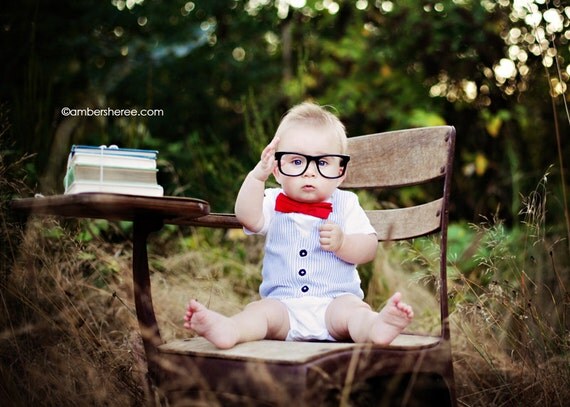Most of these things are simple and natural. You probably already do them, but maybe you don't even know how important they are and how many people don't do them!
- Read to your baby. This is something most of you already do, but it's so important! Language development starts on day one and it is never to early to start reading. When you do, point to words, identify title and author, and let baby turn pages.
- Talk to your baby face-to face. It helps when they can see your mouth and your expression.
- Label common objects. Yes, even infants can benefit from seeing written words and understanding that words are symbols for things in our lives.
- Introduce music and singing. Don't be shy! Your baby won't care if you are tone deaf.
- Let the baby have a safe-glass mirror to look in.
- Point out and name body parts during dressing, and bathing.
- Use short utterances with simple grammar.
- Heighten facial expressions, gestures, and intonation. You may look ridiculous, but studies have shown this "motherese" is really beneficial to development!
- Play turn-taking games such as patty cake and peek-a-boo.
- In very early infancy, introduce black and white objects. Newborns need the high contrast of black and white. (Sorry, but all those bright colors you used to decorate the nursery? Yeah, they can't even see them yet.)
- Imitate the sounds the baby makes, and introduce new sounds to the baby. These could be actual speech sounds or just silly sounds you can make with your mouth.
- When your baby makes sounds or babbles, respond to him/her. Baby will begin to see that all this jabbering has a positive effect and helps them achieve something.
- Make a habit of using greetings and saying goodbye. Say hello/goodbye to anyone and everything. Say goodnight to stuffed Elmo when he goes in the toybox.
- Provide simple opportunities for baby to put items in and take items out of containers like tupperware. This is great for fine motor skills and teaching concepts like in/out, on/under, in front/behind, up/down.
- When you do chores or run errands, bring baby and describe what you're going. "We are walking in the grocery store. We are picking out apples and bananas," etc.
- Expand on what your baby says. If you read a book and baby sees and says, "Bear!" then you might respond, "Yes, I see a brown bear in a tree." Soon, you'll see baby's phrases getting longer!
- Introduce two languages from birth, if possible. Yeah, that's pretty a big one, but even throwing in some simple words and phrases from another language can help!
- Remember that the American Pediatric Association recommends NO television before the age of 2. I realize that's pretty strict, but try to keep it to a minimum.
- Try to give baby as many different experiences as you can. Baby needs as much context and world knowledge as possible so he/she can conceptualize things later.
- Love and snuggle baby. Never underestimate the power of physical closeness and lots of smooches. A secure attachment to you can literally affect baby's whole life.
Maybe you already knew all of this. Great! Maybe it was a nice refresher or confirmation that you were doing the right things. Great! Maybe you got some new ideas. Great!
I'm excited about everything I learned yesterday. I hope I can share more soon!



No comments:
Post a Comment